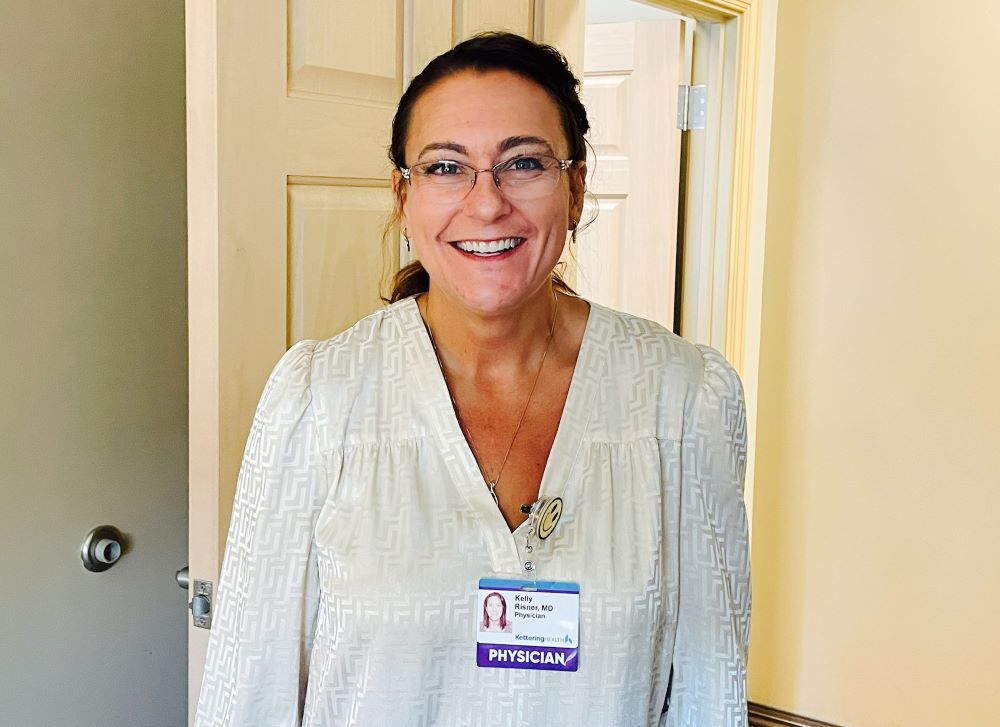Women’s Health
Want to learn more about this at Kettering Health?
The physical symptoms of polycystic ovary syndrome (PCOS) may lead to feeling self-conscious. It can be an overwhelming and isolating experience, but you’re not alone.
Dr. Kelly Risner, an OB-GYN, shares some available treatment options, and Julie Manuel, a behavioral health specialist, shares how to cope with symptoms.
What is PCOS?
PCOS is a hormonal disorder that causes small, fluid-filled sacs, or cysts, to form on the ovaries.
According to Dr. Risner, women with PCOS have imbalanced hormones with slightly elevated levels of testosterone and androgen. Every woman’s hormone levels are different, meaning there is no “normal” when it comes to PCOS.
PCOS can have a wide range of symptoms, including
- Irregular and painful periods
- Infertility
- Acne
- Hair growth and loss
- Weight gain
- Hyperpigmentation
Coping with symptoms
About 15% of women have PCOS, according to Dr. Risner, but it can still be an isolating experience.
Julie Manuel, clinical program manager at Kettering Health Behavioral Medical Center, says it’s important for women struggling after a diagnosis to talk through their emotions, either in a group or in an individual therapy session.
“Whichever approach works best for them will begin helping them change negative thought patterns into more positive and affirming self-talk,” she says.
Along with group or individual therapy, Julie recommends journaling to recognize and understand negative thought patterns. She also recommends establishing a self-care routine.
“Taking time for yourself, scheduling a massage, spending time in prayer or meditation, and talking with your trusted group about what you are experiencing can help you find more joy in your daily lives.”
If you’re dealing with PCOS symptoms, it’s important to know you’re not alone.
A path forward
While there is no cure for PCOS, options are available. Your OB-GYN is there to help and create a treatment plan that fits your wants and needs.
“We can work through it,” says Dr. Risner.
The hormonal birth control pill, for instance, can even out hormone levels, regulate periods, and target physical symptoms, such as acne and unwanted hair growth. Because women with PCOS are insulin resistant, Dr. Risner often recommends a diabetic-style diet to lose or maintain weight.
PCOS is a life-long diagnosis that comes with its ups and downs. It’s OK to have low moments when working through treatment options. Your OB-GYN is there to help.
“This is a hard, chronic disease,” says Dr. Risner, “and I understand.”









